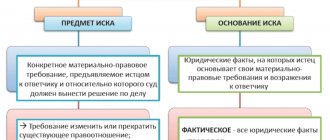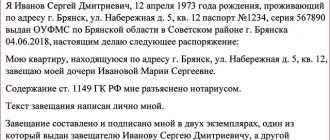The death of a person raises a large number of questions for his relatives that require resolution. One of these issues is the removal of the deceased from the apartment. This procedure is mandatory, as it allows you to dispose of the property in the future without any problems. If registration in the apartment was issued on the basis of a rental agreement, then such an agreement requires re-registration.
The deregistration of the deceased takes place at the Directorate for Migration Issues of the Ministry of Internal Affairs of the Russian Federation (formerly the Directorate of the Federal Migration Service of Russia).
In addition, an application for an extract at the place of residence can also be submitted through the multifunctional center for the provision of state and municipal services (MFC). As with any other legally significant procedure, to remove a deceased person from an apartment, it is necessary to collect a package of documents specified by law. To obtain one of the required documents— a citizen’s death certificate —you will need to collect a separate package of documents.
The application for discharge itself does not have a template established by law; it is drawn up arbitrarily in simple written form, indicating the specific data of the applicant, the deceased, the registration address and information about the body to which the application is being submitted.
Is it necessary to discharge a person from an apartment after death and why?
There are several reasons why it is necessary to discharge a person from living space after his death:
- All property that a citizen owned and disposed of during his lifetime passes to his heirs after death. After entering into inheritance, they have the right to sell the apartment where the deceased was previously registered. To do this, you will need to deregister everyone who is registered in it (clause 2 of Article 292 of the Civil Code of the Russian Federation). Sooner or later the deceased will have to be discharged, but it is better to do this on time in order to reduce the time for completing all the documents necessary for the sale.
- Payments for some utilities are calculated based on those registered in the residential premises. To reduce costs, it is better not to delay the discharge of a deceased relative.
- Difficulties may arise if you want to register an apartment for another person, since the minimum living space per person registered is taken into account. If the apartment is small and the deceased remains registered in it, another citizen may be denied registration if the standards for the number of square meters are not met.
- It is impossible to privatize an apartment if a deceased person remains registered in it.
Documentation, period and price of the service for the discharge of the deceased
List of required official papers to discharge a deceased person from an apartment:
- Applicant's passport.
- An act indicating the death of a particular citizen.
- A document containing personal information about the deceased.
- Papers certifying blood ties - certificate of childbirth or marriage, etc.
In the absence of such a package, it will not be possible to collect the death certificate and, accordingly, carry out further procedures. The issuance of a death certificate is carried out free of charge in any institution (morgue, hospital). When you hand over the deceased’s passport to the registry office, you do not need to return it, as it will be cancelled.
Regarding the timing of the operation, the regulations do not indicate information about specific dates within which the deceased must be removed from the register.
But you should not delay initiating this operation, because:
- The dead person regularly continues to be charged full utility bills, since the management company does not know about the death of the owner of the premises.
- The risk of difficulties with the sale of real estate.
- Difficulty in using the municipal facility where the deceased lived. If family members do not renew the contract in a timely manner, the living space will no longer be at their disposal and will be transferred to the state.
- Without official deregistration, it will not be possible to complete the privatization procedure.
Who can discharge a deceased person from an apartment?
The procedure for deregistration of an apartment is usually carried out by citizens related by family ties: spouse, children, parents, grandparents, etc.
In the absence, a person who has received the original death certificate of the citizen and documents for the housing from which he needs to be discharged can apply for an extract.
If the owner of the apartment has died, then it is necessary first for the apartment to be inherited, and then to proceed with the extract.
Communal payments
As long as a person is registered in the apartment, even if he died, he will have to pay utility bills. To cancel the accrual of payments, you will have to contact the organization that accrues them (management company, HOA, etc.).
In this case, it is necessary to provide the following documents:
- death certificate of the registered person;
- passport of the person making the request;
- application (a sample can be taken from the organization or drawn up in any form).
After this, the organization that calculates utility bills is obliged to recalculate for the entire time starting from the day of the person’s death. They have no right to refuse recalculation.
However, if this happens, then demand a written refusal, and then contact the prosecutor’s office, or, in extreme cases, the court.
It is worth understanding that after an application for a reduction in payments, all benefits that were due to the deceased person are canceled. They are not inherited, so there is no point in claiming them. The recalculation will also occur without taking into account the benefits assigned to the deceased.
Example. Six months after the death of Volkov E.M. his wife Volkova S.L. appealed to the management company with a request not to charge fees for the deceased and to recalculate utility bills. The head of the management company explained that the recalculation would not be made, since Volkova had a debt to pay for utilities and said that she should have contacted the management company earlier.
Volkova S.L. I turned to a lawyer for advice, who explained that the arguments of the director of the Criminal Code were contrary to the law. He helped file a claim with the management company, but there was no response. Then the lawyer drew up a statement of claim to the court and represented the interests of S.L. Volkova at the court hearing. The court fully satisfied the claims, the defendant's arguments were recognized as untenable and contrary to the law. By decision of the court, the Criminal Code made a recalculation.
How long does it take to discharge a person after death?
There is no legislative deadline for applying for an extract from a deceased citizen and therefore no fines are provided in this regard. Therefore, relatives have the right to decide for themselves when to submit a corresponding application to the migration service, in a week, month or year.
Relatives or another person can immediately apply for an extract from the apartment after receiving the citizen’s death certificate. The date of the discharge mark will be the date of death indicated in the certificate, and in its absence, the date of state registration of death.
The legislative framework
The removal of deceased citizens of the Russian Federation from apartments and private houses is regulated by the following legal acts:
- Decree of the Government of the Russian Federation No. 713;
- Administrative regulations of the FMS according to Order of the Federal Migration Service of the Russian Federation No. 288;
- Article 32 of the Housing Law of the Russian Federation;
- Law of the Russian Federation No. 5242-1, etc.
Before deregistering a deceased person from an apartment, it is recommended that you familiarize yourself with the laws in order to do everything as correctly as possible and without wasting extra time rewriting the application or collecting additional documents.
Through what authorities can a deceased person be discharged?
All actions related to registration of citizens are carried out by the Directorate for Migration Issues of the Ministry of Internal Affairs of Russia. You can submit an application for the discharge of a deceased person in one of the following ways:
- directly to the migration service;
- through the MFC;
- through a homeowners association or management company;
- fill out the electronic application form on the State Services website.
Additionally, you should contact the HOA or management company to re-register your personal account if the deceased citizen was the owner of the apartment.
Results of service provision
De-registration is absolutely free and is not subject to fees. The result of this service can be both positive and negative. In a positive case, the person is discharged from his previous place of residence and a stamp is placed in his passport with a note indicating that the citizen has been deregistered.
To avoid fines, do not forget about the obligation to register at your new place of residence after discharge within 7 days. You can also find out how to register for an apartment or house through the MFC on our website.
In the negative case, the citizen receives a refusal. A refusal can be obtained, for example, if a person wanted to check out with the help of a trusted person, but did not provide his identity document.
In case of refusal, the issue can be resolved through the court. To go to court, you need to file a claim with the Magistrates' Court. It is not necessary to personally visit the court office; you can send all documents via mail or courier. If it is not possible to come to court, then you can add a petition to the documents sent to consider the case without the plaintiff. Refusals in court are extremely rare.
Documents for discharging a deceased person from an apartment
The authorized body will only need to provide the original death certificate of the citizen. If it is not submitted, the department independently requests information from the civil registry office and, based on the response, deregisters.
To obtain a death certificate, you must contact the MFC or the civil registry office at the latest:
- place of residence of the deceased;
- the location of the organization that issued the death certificate;
- the place where death occurred or where the body of the deceased was found.
The applicant must present:
- a certificate of the death of a citizen or a notarized copy of a court decision declaring him dead;
- the deceased’s passport (if available) is submitted to the civil registry office or MFC and is declared invalid from the date of death;
- applicant's passport;
- application for deregistration of the deceased.
If the application is sent to the department through the State Services portal, then the listed documents must be submitted in person to the registry office. A death certificate will be issued on the day of application.
Instructions for discharge if you have a death certificate on hand
The Ministry of Internal Affairs, namely their migration department, began to deal with the registration and discharge of citizens. Abbreviated as UVM MVD. They accept applications from citizens directly or through intermediaries in the form of the “My Documents” MFC, passport offices and State Services - clause 23 of the Order of the Ministry of Internal Affairs N 984 and the list in the Decree of the Government of the Russian Federation of July 17, 1995 N 713). In our case, public services are eliminated.
The instructions don't vary much depending on the organization, so read the pros and cons of each first:
- District Department of Internal Affairs of the Ministry of Internal Affairs.
Pros - 1) You can make an appointment through State Services. It’s better to do this, I’ll explain why in the minuses. 2) The deadline for discharge is within 3 days (clause 36 of Order of the Ministry of Internal Affairs No. 984).Cons: 1) According to paragraph 91 of Order of the Ministry of Internal Affairs N 984, you can come to the Ministry of Internal Affairs without an appointment, but it is easy to stumble upon long queues of those who have signed up in advance. You can make an appointment by phone, but they rarely answer. Personally, I have never been able to get through. Therefore, I advise you to sign up through State Services. 2) Even if you make an appointment in advance, you can usually get an appointment within 4 days or more. As a result, you will have to wait longer than when contacting the MFC or passport office. 3) Poor advice on filling out documents.
- MFC "My Documents".
Pros - 1) You can make an appointment by phone or through their website. 2) Statement period: within 3 working days. MFCs send applications to the Ministry of Internal Affairs electronically through the system of interdepartmental interaction (SMEV) - clause 35 of Order of the Ministry of Internal Affairs N 984. 3) Employees fill out the application themselves.Disadvantages - 1) MFCs do not provide such a service everywhere. First, call your local offices and inquire about this issue. You can find addresses and phone numbers on the Internet. 2) Sometimes there are queues, because the MFC provides many other services.
- Passport office of the Management Company (housing department, housing office) or homeowners association.
One plus is that there are usually no queues. Cons: 1) The check-out period is within 6 days. Passport officers submit documents to the Ministry of Internal Affairs in paper form, because they are not connected to the system of interdepartmental interaction - clause 32 of Order of the Ministry of Internal Affairs N 984. 2) They can charge about 30-100 rubles for accepting and sending documents, but in most management companies such a service is already included in the price home maintenance.
Through the passport office or MFC
The instructions for discharge in these organizations are the same, so they will be common:
- We submit our passport, the citizen’s death certificate and an application to deregister him.
The application is written in free form, the form to fill out will be given on the spot. You can download a sample for reference. - The application will be sent to the Department of Internal Affairs of the Ministry of Internal Affairs.
The officer will collect the application and a copy of the death certificate. Everything else will be returned to the applicant. The received documents will be sent to the Ministry of Internal Affairs. There is no need to go anywhere else.When applying to the MFC, the citizen will be discharged within 3 days, when applying to the passport office - within 6 days. The date of discharge of the deceased will be the date of his death from the certificate - clauses 118.7.2 and 118.7.3 of Order of the Ministry of Internal Affairs N 984.
Through the Department of Internal Affairs of the Ministry of Internal Affairs
- We make an appointment through State Services.
I already wrote above that because of the queues, it is better to sign up in advance. If this is not possible, go straight to the Ministry of Internal Affairs. Instructions continue below.To make an appointment, go to the service page, log into your personal account or click on “make an appointment.”
(to enlarge the picture, click on it)
Select “Stop registration” and confirm your phone number and email. Now we indicate the region where we will apply.
A map will appear with the addresses of the district Ministry of Internal Affairs. We select the Ministry of Internal Affairs according to the registration address of the deceased. Use the map or search. Then click “Select”.
Select the date and time of your visit, then “Make an appointment.”
Now click “Add to your personal account”.
Your appointment will be confirmed immediately. We go into it and remember the service PIN code from below after the card.
- On the appointed day we contact the Ministry of Internal Affairs. It is better to arrive 15 - 20 minutes in advance. If there is an electronic queue terminal, enter the PIN code you received earlier. If there is no terminal, we inform the employee of the PIN code.
We provide your passport and citizen’s death certificate. Then we draw up a free-form application for the discharge of the deceased. The form will be given there at the Ministry of Internal Affairs. We have a sample for your reference.No need to come anymore. The citizen will be discharged within 3 days - clause 36 of Order of the Ministry of Internal Affairs N 984. The date of discharge of the citizen will be the date of his death from the certificate - clauses 118.7.2 and 118.7.3 of Order of the Ministry of Internal Affairs N 984.
Stages of discharge
The discharge of a deceased citizen occurs according to the following algorithm:
1. Obtain a death certificate or a court decision declaring the citizen dead. The certificate is issued:
- a medical organization if a citizen died while being treated;
- morgue in case of delivery to it for autopsy, identification or release to relatives;
- by an emergency medical technician when certifying the fact of death at home.
2. A relative or other interested person, if they are absent from the deceased, applies for a death certificate.
3. An application for discharge is submitted to the migration service of the Ministry of Internal Affairs.
4. The department removes the citizen from registration within three days.
5. After receiving supporting documents, if necessary, the personal account is reissued and the amount paid for utility bills is recalculated.
If the deceased relative was a tenant of municipal housing under a social tenancy agreement, then the contract will need to be reissued to the relative who lived with him in the premises.
To do this, you will need to contact your local municipality with a corresponding application, attaching:
- death certificate of the employer;
- your passport;
- a document confirming family relations with him.
Is it necessary to deregister those who died in the apartments?
Today a new type of apartment is popular in Russia – apartments. Functionally, these properties are traditional apartments. They have kitchens, rooms, bathrooms and even balconies. However, legally, apartments are non-residential premises. They are converted from office buildings and hotels or built where a residential building cannot officially stand (for example, in a nature reserve).
Registration in the apartment is not possible. A person can only temporarily register in a property for a maximum period of 5 years. Often an apartment is a citizen’s only home, and in fact he has no other registration. If such a person dies, his temporary registration will not be cancelled. To de-register an apartment, relatives of the deceased must also bring identification documents and write statements.
Difficulties that may arise
Discharging a deceased person is not always easy. Let us give an example when difficulties arose that had to be resolved only through the courts.
The citizen is registered in the apartment, but there has been no information about him for several years. There is a need to sell this property, but no one must be registered in it to complete the transaction. It is impossible to discharge a missing relative without his consent; all that remains is to go to court to declare him dead.
According to Art. 42 of the Civil Code of the Russian Federation, in case of absence from the place of residence for a year, the court can recognize the person as missing. After five years of absence of information about a citizen, relatives can apply to the court to declare him dead. Only on the basis of a court decision is a person deregistered from the apartment.
The procedure for obtaining services at the MFC and the necessary documents
Multifunctional centers were created both to simplify various bureaucratic procedures for citizens and to relieve the burden on government agencies. All information in the databases of the MFC and the migration authorities of the Ministry of Internal Affairs is stored identically, so there will be no delays or inaccuracies.
Checking out of an apartment through the MFC is very convenient, because... Documents are received in one window, which significantly speeds up the process. Submitting and checking documents takes no more than 15 minutes.
To get an extract, you can come to the “My Documents” multifunctional center in person, carry out the procedure through a proxy, or simultaneously with registration at a new place of residence (only if the old and new housing are located in the same city or MFC service area). Employees of the organization will accept the prepared documents and application and begin processing.
Before visiting the MFC, find out what documents you will need. In some cases, additional paperwork is required.
As a standard, to make an extract you need to provide:
- statement;
- passport.
If a person, along with an extract, wants to register in a new place and is not the owner of the property or a tenant there, then it is necessary to provide the consent of the owners of the property at the place of future registration.
The application is reviewed within three days.
If you simultaneously register at a new address, then the old registration entry does not have to be removed. If the old and new housing are located in the same service area of the “My Documents” center, this will be done automatically during the registration of new registration at the place of residence.
In order to be deregistered simultaneously with registration in a new place, you must provide:
- passport;
- 2 applications – on registration and deregistration;
- document on the ownership of the housing, where he is going to register if the applicant is the owner;
- consent of the owner of the apartment, if the applicant is not the owner.
According to the above scheme, it is impossible to check out of the apartment through the MFC “to nowhere”. To check out of the apartment without further registration, you will have to appear before the authorities personally or to a trusted person.
Deadlines
Let us say right away that no “excusable” deadlines apply as an exception. The discharge of the deceased from a municipal apartment occurs within 3-4 days from the date of the relative’s application. The timing may vary depending on the workload of the territorial office of the Main Directorate for Migration Affairs of the Ministry of Internal Affairs.
It is advisable not to delay the deregistration - the sooner you deregister the deceased, the fewer utility bills you will receive for the apartment. Imagine that the tenant is no longer there, but the management company continues to charge payments as if for a living person.
Early deregistration from the apartment allows you to resolve this issue once and for all.
Where to contact
Registration issues are regulated by the Federal Migration Service. To discharge a tenant from an apartment after his death, you must personally (or through legal representatives) visit its nearest territorial office or intermediary organization.
The law also provides for a remote route - the possibility of sending an electronic application through the personal account of the State Services website with the provision of scanned copies and later original documents.
Where can they write:
- at the passport office at the HOA or housing department (passport and visa service);
- through the Internet service - Unified Portal of State Services;
- regional branch of the Federal Migration Service;
- through the current division of the State Budgetary Institution MFC, located at the place of residence of the deceased, otherwise “My Documents”.
Possible difficulties
Relations between relatives do not always develop in a positive way. It is not uncommon for family members to be unable to share a death certificate. Without this document, it is impossible to take any legal action regarding the deceased or his property.
The complexity is solved by ordering a duplicate of the required document. This can be done by personally contacting the registry office, by submitting an application on the State Services portal, or by visiting the territorial MFC.
The initial issue of a certificate is not subject to state duty, but you will have to pay for a duplicate. The fee is 200 rubles.
Afterword
The death of a loved one is a sad event, but despite the grief, one should not forget about the correctness of the procedures. This is necessary to avoid further problems and to discharge the deceased person from a private house or apartment according to the rules.
Sources
- https://estatelegal.ru/oformlenie/propiska/kak-vypisat-umershego-cheloveka/
- https://provashiprava.ru/kvartira/vypiska/nuzhno-li-vypisyvat-umershego.html
- https://kvartirniy-expert.ru/vladenie-i-polzovanie/propiska-i-vypiska/umershego/
- https://fms21.ru/vipiska/kak-vypisat-umershego-iz-kvartiry.html
- https://MoiPrava.pro/zhilyo/pravo/kak-vypisat-umershego
- https://MFC-Gosuslugi.ru/propiska-i-vypiska/vypiska-iz-kvartiry
How to check whether he has been discharged or not?
The extract is reflected in the apartment or house register. Indirect evidence of deregistration is also new utility bills that begin to arrive after recalculation. The receipt must indicate the number of registered residents, excluding the deceased.
We advise: What is fictitious registration? Penalty for false registration
Another option is to submit a request to the Ministry of Internal Affairs of the Russian Federation or a regular address desk, where they look for addresses of people by last name.









